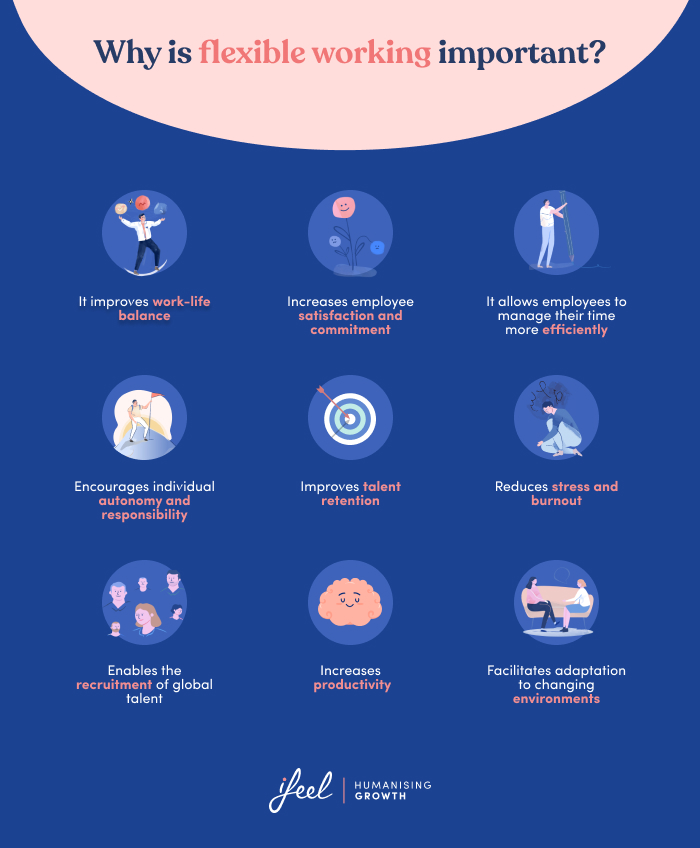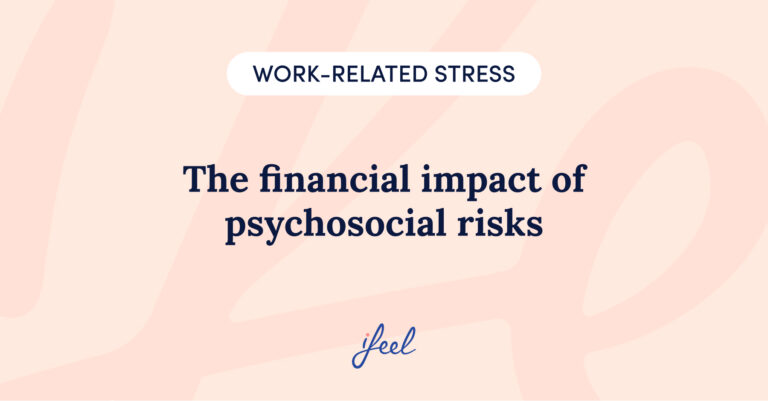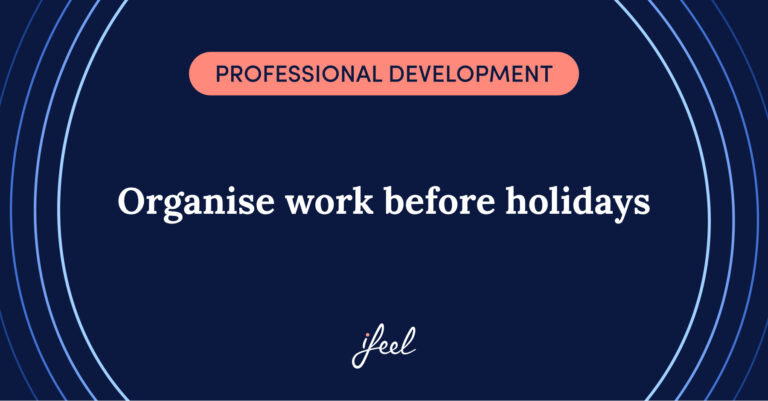Maternity leave is a pivotal period that significantly impacts the mental and emotional health of women during their transition to motherhood. This time is crucial as it allows women to adapt to their new roles, promoting overall health and well-being. In this article, we delve into the benefits of maternity leave, its role in nurturing women’s mental health, and how enterprises can support employees during this critical time.
Advantages of maternity leave
Maternity leave offers numerous benefits by providing women the time and space needed to manage the immense changes that accompany the birth of a child. Physically and emotionally, this period allows women to recover from childbirth, establish new routines, and focus on self-care. Such a transition is essential for developing childcare skills and fostering confidence and security in their new role as mothers. During maternity leave, women can prioritise their mental well-being, ensuring proper rest and receiving the necessary support to navigate the challenges of motherhood.
Key benefits for the mother
The benefits of maternity leave extend beyond immediate care, providing a nurturing environment that fosters emotional connections, reduces stress, and empowers women to balance their personal and professional responsibilities. Below, we explore how these aspects contribute to the overall well-being of both mother and child, setting the stage for a healthier, more balanced lifestyle.
- Mother-child bonding and emotional development: Maternity leave facilitates the establishment of a strong emotional bond between mother and child, crucial for the baby’s emotional development and the mother’s mental health.
- Reduction of stress and emotional support: Provides a safe space for rest and recovery, reducing stress and preventing postpartum depression with essential emotional support from professionals and loved ones.
- Empowerment and work-life balance: Enables women to balance personal and professional lives, reducing gender discrimination and fostering a more egalitarian society.
Key benefits for the enterprise
Maternity leave is a critical benefit for new parents and a strategic asset for enterprises. By implementing comprehensive maternity leave policies, companies can foster a supportive work environment that enhances employee well-being and productivity. Furthermore, maternity leave supports gender equality and contributes to a diverse and inclusive workplace. Below, we explore the numerous benefits maternity leave offers enterprises, highlighting its value in driving business success and fostering a positive organisational culture.
1. Enhanced employee retention: Offering maternity leave can significantly improve employee retention rates, as employees are more likely to return to work after leave if they feel supported by their employer.
2. Improved employee morale: Supporting employees during maternity leave fosters a positive work environment, enhancing overall employee morale and satisfaction.
3. Attraction of top talent: Comprehensive maternity leave policies can make a company more attractive to potential employees, helping to recruit top talent in competitive job markets.
4. Reduced turnover costs: By retaining employees post-maternity leave, enterprises can reduce the costs associated with hiring and training new staff.
5. Promotion of diversity and inclusion: Maternity leave supports gender equality in the workplace, promoting a more diverse and inclusive corporate culture.
6. Improved employee health: Providing time for recovery and adjustment after childbirth contributes to better physical and mental health outcomes for employees, reducing absenteeism related to health issues.
Maternity leave is a pivotal component of a progressive workplace strategy that benefits both employees and enterprises. Supporting maternity leave is a powerful testament to a company’s commitment to fostering a sustainable and supportive work environment, positioning it for long-term success and a positive corporate reputation.
The enterprise’s role during maternity leave
Companies play a crucial role in supporting employees as they transition into motherhood. Here’s how organisations can assist:
| Guideline | Description |
|---|---|
| Know and comply with labour laws | Familiarity with laws concerning maternity leave ensures that companies provide appropriate benefits and respect employees’ rights. |
| Maintain open communication | Encouraging transparent dialogue helps understand employee needs and clarify processes related to maternity leave. |
| Flexibility and adaptability | Offering flexible work options, such as remote work or phased reintegration, helps employees balance work and family responsibilities. |
| Provide emotional support and well-being | Empathetic support via resources like counselling can enhance the mental well-being of returning employees. |
| Prevent discrimination | Ensuring equal opportunities and avoiding penalisation due to maternity leave fosters an inclusive workplace. |
| Offer childcare programs | Implementing childcare services aids employees in managing family responsibilities effectively. |
| Promote re-entry and professional development | Providing reintegration programs and development opportunities supports a smooth transition back to work. |
By adopting these practices, companies demonstrate their commitment to employee well-being and contribute to an equitable work culture.

Comparing Maternity Leave Policies: UK, USA, and Norway
Maternity leave policies vary significantly across countries, reflecting different cultural, economic, and legislative approaches to supporting new parents. Understanding these differences can help organisations benchmark their policies against global standards and highlight the importance of comprehensive maternity leave provisions for employee well-being and retention. Below is a comparative table outlining the maternity leave policies in the UK, USA, and Norway.
| Country | Maternity Leave Duration | Additional Notable Features |
|---|---|---|
| United Kingdom | Up to 52 weeks total; 39 weeks paid | Shared Parental Leave allows parents to share up to 50 weeks of leave and 37 weeks of pay. |
| United States | Up to 12 weeks under FMLA (unpaid) | Some states offer paid leave, but coverage and duration vary significantly by state. |
| Norway | 49 weeks at full pay or 59 weeks at 80% pay | Includes a mandatory 3 weeks pre-birth leave; flexible arrangements for fathers to share leave. |
The Leadership Lens🔎
Leaders play a crucial role in creating a supportive environment for employees transitioning through maternity leave. By encouraging flexible work arrangements and phased returns, leaders can help employees balance their new responsibilities with their professional roles. Maintaining clear and empathetic communication is essential, allowing leaders to understand and address the unique needs and expectations of employees during this critical time.
Mental health: The biggest business challenge of our time
At ifeel, we recognise that addressing and supporting women throughout maternity leave is not just a moral obligation, but a strategic necessity for long-term success.
To help in this process, our clinical team provides leading companies in their sector with a dynamic, scalable and fully personalised solution, powered by AI. We have a strategy and approach based on key data to help organisations with a global presence address one of the biggest business challenges of our time: mental health at work.
This solution offers employees a mental health care service structured at different levels depending on their needs at any given time. Discover our Resources section, where you will find various materials, such as webinars, podcasts, guides for human resources on current topics, and interviews with leaders of large organisations.
Data-driven methodology
Our mental health solution for enterprises employs evidence-based practices and innovative methods, backed by the latest research and a network of over 600 mental health professionals. Would you like to know more about our Clinical Research Department? Don’t forget to visit this section to stay informed about the latest studies and research on mental health in corporate environments.
We hope you found this article on maternity leave interesting.
If you would like more information simply request it here. Our team will calculate the ROI based on your enterprise’s specific characteristics.











